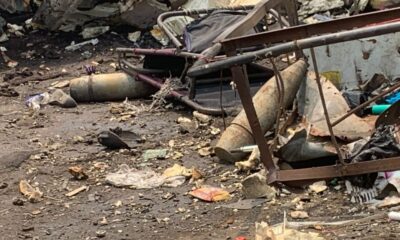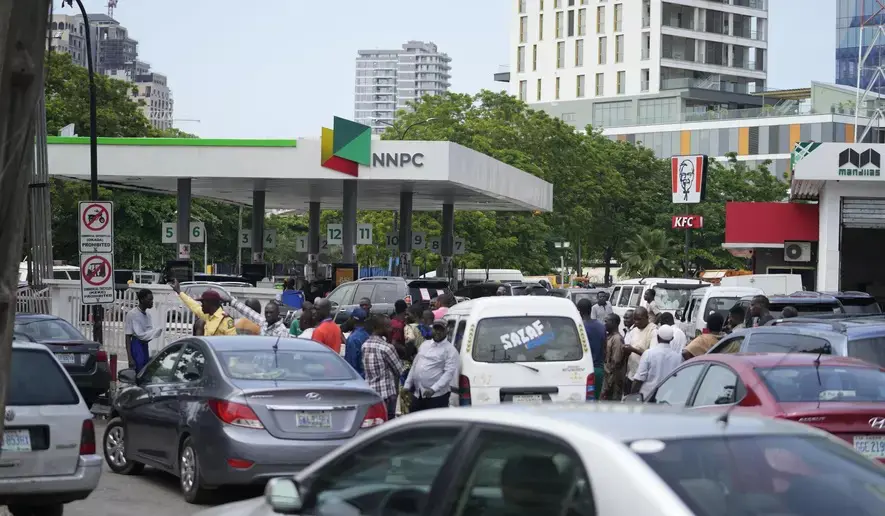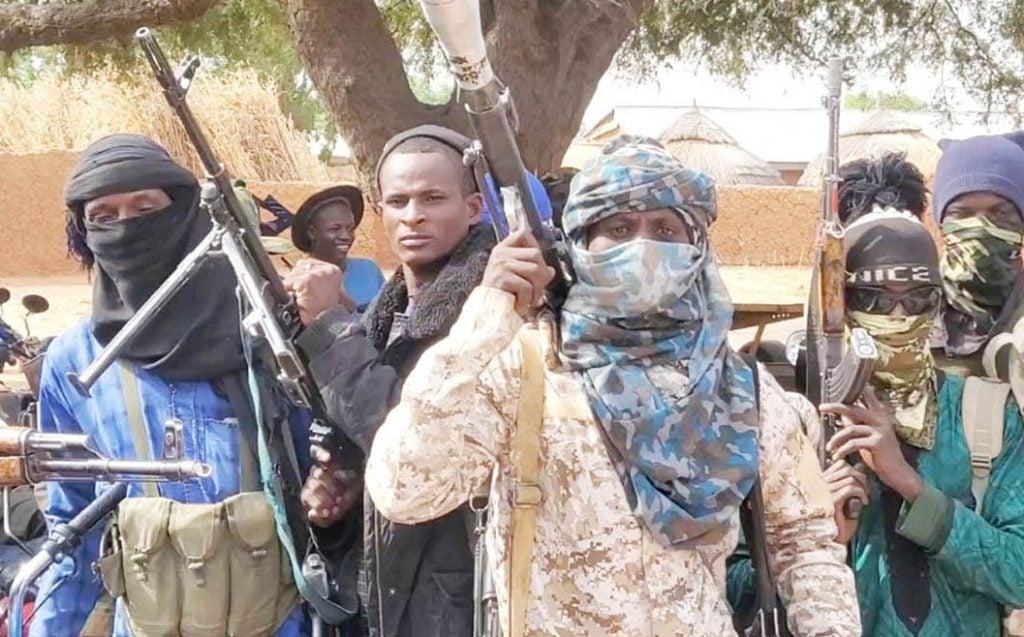News
Felons aren’t welcome: all the countries Trump can’t visit
Published
7 months agoon
By
Ekwutos BlogTravel becomes more complicated for convicted felons. This is a factor that Donald Trump will need to consider when making travel plans in the future.

Performing his diplomatic duties might be very challenging for Donald Trump if he is elected president in November. As a convicted felon there is now a very long list of countries where Trump will be banned from entry.

According to World Population Review, many countries bar convicted felons from entry. Thirty-eight nations, including the United States, ban convicted felons outright from entering their countries.

As reported by People magazine, the bans are enforced even if the convicted individual is still allowed to retain their passport. This could potentially make Donald Trump’s political life significantly more challenging if he were to return to the White House, adding a layer of uncertainty to his future.

However, it is true that in some cases, the international government may decide to make an exception for Donald Trump, particularly if he requested special permission to visit the country as the president of the United States.

Ironically, Trump himself has often called foreigners coming to the United States criminals, and now he himself will be a foreign convicted criminal hoping to enter another country.

Regardless, the list of countries that ban convicted felons from visiting is extensive, and many of these countries are either US allies or nations crucial for Trump’s foreign policy engagements. This situation could significantly impact Trump’s international relations. Click on to see all the countries Trump is banned from visiting.

Both Canada and Mexico ban convicted felons from entering the country. These countries are the United States’ closest neighbors, so it could really make life difficult for Trump.

Technically Cuba is considered part of North America, and Trump likely wouldn’t be traveling there, but even if he wanted to, he would be banned from entry.

There are four countries in South America that ban convicted felons from entry: Argentina, Brazil, Chile, and Peru.

There are four countries in South America that ban convicted felons from entry: Argentina, Brazil, Chile, and Peru.

While not technically in South America, the Dominican Republic also isn’t interested in receiving criminals and bans convicts from entering.

Donald Trump, surprisingly can visit most European countries as a convicted felon. However, there are a few countries where he is banned, including the United Kingdom and Ireland, both close US allies. In addition he won’t be able to visit Turkey or Ukraine.

When it comes to Asia, things are pretty strict, and there are very few countries that Trump could travel to. Convicted felons are banned from: Cambodia, China, Hong Kong, India, Indonesia, Japan, Malaysia, Macao, Philippines, Singapore, Nepal, South Korea, and Taiwan.

Trump may have to cancel any plans to go on an African safari in the future. As a convicted felon he is persona non grata in Kenya, Morocco, South Africa, Tanzania, and Tunisia.

Trump’s political life, if elected, would be further complicated by the inability to make diplomatic trips to visit American allies Australia and New Zealand as both countries have bans on felons entering.

And when it comes to the Middle East Trump is banned from entering Egypt, Iran, the United Arab Emirates, and I s r a e l. However, we think I s r a e l would likely make an exception for Trump, as the country’s leader has his own legal troubles, the president of I s r a e l is wanted by the ICC.

Of course, if Trump does win in November, we have a pretty good feeling one of the first things he will attempt to do is give himself a clean slate by granting his own presidential pardon. That’s too bad because it would have been fun seeing him suffer trying to enter all those countries.
See also: Could Trump pardon himself as president?
You may like


Anambra 2025: Defections Rocks APC as Party Heavyweights Quit Guber Race


Transfer: I’m yet to decide my future – Osimhen


The 50-year-old code that reshaped the world: Bill Gates on the ‘revolution’ that started Microsoft


Renowned Bauchi cleric, Abdulaziz Dutsen Tanshi is dead


Scavenger dies, three hospitalised as military grenade explodes in Lagos


Adeyanju Commends AIG Gumel for Stance Against Emergency Declaration in Rivers State Amidst Persecution by IGP Egbetokun, Says Nigeria Need Courageous Men Like Him
Business
Dangote refinery, NNPC: More fuel stations increase pump price in Nigeria
Published
12 hours agoon
April 4, 2025By
Ekwutos Blog
The price of Premium Motor Spirit, popularly known as fuel, has recorded a significant increase in the past days, which may worsen the economic hardship Nigerians face.
MRS, a filling station partner of Dangote Refinery, kicked off the latest fuel price increase when it adjusted its petrol pump to between N925 and N950 per litre in Lagos and the Federal Capital Territory, Abuja.
Similarly, other fuel marketers such as Empire Energy, Recoil, Juda Oil, Total, Emedab, and others also increased their fuel pump to between N950 and N970 per litre.
On Wednesday, the Nigerian National Petroleum Company Limited retail outlets also jacked up their fuel price to N950 per litre from N880 in Abuja.
Summarily, Ekwutosblog observed motorists will have to pay N70 more to buy a litre of petrol in the coming days.
The development comes amid the suspension of petrol product sales in Naira by Dangote Refinery. This follows the initiation of the naira-for-crude sale deal between Dangote Refinery and the federal government through NNPCL.
On Wednesday, President Bola Ahmed Tinubu announced a reshuffling of NNPCL.
Meanwhile, local oil prices are increasing in Nigeria, despite the decline in global crude prices. As of the time of this report, United States West Texas Intermediate was at $62.15 per barrel, down from above $65, while Brent crude stood at $65.42 per barrel, down from $72 last week.
News
Bandits ambush commercial vehicle on Kebbi-Sokoto road, kill passenger
Published
13 hours agoon
April 4, 2025By
Ekwutos Blog
A group of armed bandits ambushed a commercial vehicle traveling from Kebbi to Sokoto on Thursday, killing one passenger in a deadly attack along the highway.
The incident, which occurred around 11:30 a.m., was revealed in a post by security analyst Zagazola Makama on X on Friday.
According to Makama, the attackers, riding on motorcycles, opened fire on the moving vehicle, hitting one of the passengers, Dan Gande Usman, in the head.
“The armed bandits struck along the Kebbi-Sokoto road, opening fire on a commercial vehicle and killing a passenger,” Makama wrote.
“The victim, Dan Gande Usman, succumbed to his injuries while being rushed to the hospital.”
Following the attack, troops of Operation FANSAN YANMA were deployed to the area to restore order and track down the perpetrators.
News
Four foreign activists face deportation from Germany after Berlin university sit-in
Published
14 hours agoon
April 4, 2025By
Ekwutos Blog
Berlin’s immigration authorities have ordered four foreign residents to leave the country or risk deportation over their involvement in a university sit-in against Israel’s military offensive in Gaza.
Authorities have claimed the quartet — two from Ireland, one from Poland and one from the US — constitute a threat to public safety and should therefore leave Germany as soon as possible, according to a lawyer representing two of them.
They have been told to leave Germany by 21 April or face deportation.
Criminal and immigration lawyer Alexander Gorski said his clients had ongoing criminal proceedings for minor charges, such as trespassing, insulting police and resisting arrest related to their attendance at multiple pro-Gaza protests.
The four all participated in a pro-Palestinian protest at Berlin’s Free University in October 2024.
Berlin’s Department for Interior and Sport, which has responsibility over immigration, requested that local authorities terminate their residency in the middle of their proceedings.
Gorski said the decision was made despite hesitation from Berlin’s immigration office, which expressed concern that removing EU citizens would not be lawful. The Department for Interior and Sport ultimately overruled those objections.
Gorski said his legal team was unaware of what the activists had been charged with. “We haven’t received the file,” Gorski said.
The Department for Interior and Sport confirmed that it told the activists their residency permits were terminated, linking the decision to the university protest.
Back in October, a “violent and masked” group of people entered the university building, causing “significant property damage” including drawing graffiti related to the Israel-Hamas war as well as other crimes, the department said.
It added that criminal proceedings were currently ongoing and declined to provide further information, citing data protection laws.
A spokesperson for the German Federal Interior Ministry said on Wednesday that it did not have “comprehensive information” on the individual cases, confirming that Berlin authorities are responsible for and ultimately decide on each case.
It is unclear exactly what the four protesters were accused of doing during the protest, which was considered controversial.
The Free University in the immediate aftermath condemned the incident as a “violent attack” in which 40 masked individuals attempted to take over a campus building, “threatening employees verbally, and resorting to physical violence.” The university claimed IT equipment had been destroyed, rooms were wrecked and a Hamas symbol was spray-painted onto a wall.
The university’s general students’ committee said in October that the university had failed to “capture the complexity of events.” The committee alleges that the police presence on-site was “excessive” and that the law enforcement responded violently to the protesters in the broader context of suppressing similar demonstrations.
The Free University did not immediately respond to Euronews’ request for comment.
EU citizens’ deportation ‘highly unusual’
According to The Intercept, which first reported the story, only one of the two Irish nationals was brought before a court for calling a police officer a “fascist,” but was ultimately acquitted.
The four face separate allegations, the outlet reported, including shouting slogans such as “From the river to the sea, Palestine will be free” — a chant that has been banned, but German courts have so far delivered mixed rulings on its use.
The activists have accused Germany of “weaponising migration law” and rejected allegations supporting terrorist organisations and antisemitism as arbitrary.
The four have launched an appeal as well as a measure of interim relief in order to avoid imminent deportation, according to Gorski.
Gorski says it is “highly, highly unusual” that three EU citizens would be threatened with deportation from another member state without any criminal convictions.
Authorities said their decision was based on provisions which allow foreign nationals to be deported if they represent a threat to society.
The Department for Interior and Sport said a criminal conviction is not a prerequisite for deportation, although it would “be taken into account” when assessing the decision.
Freedom of movement within the European Union is a “a fundamental right of EU citizens”, a European Commission spokesperson said on Tuesday in response to a question on the activist’s case.
They declined to comment further on the matter, which the spokesperson said falls under the jurisdiction of internal security, which is for Germany to decide on.
In Ireland, the potential deportation of two Irish citizens has caused a stir, with the country’s Taoiseach Micheál Martin saying the issue was of “fundamental concern in terms of the freedom of movement rights that EU citizens have.”
The incident reflected a “completely different approach” to the Israel-Hamas war between Germany and Ireland, the leader said, adding he would be raising the issue with German authorities.
The Irish Foreign Office confirmed it was aware of reports of two of its citizens and was ready to provide consular assistance.
Euronews has reached out to the Polish and US embassies in Berlin for comment.

Anambra 2025: Defections Rocks APC as Party Heavyweights Quit Guber Race

Transfer: I’m yet to decide my future – Osimhen

The 50-year-old code that reshaped the world: Bill Gates on the ‘revolution’ that started Microsoft
Trending

 Trending5 months ago
Trending5 months agoNYA demands release of ‘abducted’ Imo chairman, preaches good governance
- Business5 months ago
US court acquits Air Peace boss, slams Mayfield $4000 fine

 Politics5 months ago
Politics5 months agoMexico’s new president causes concern just weeks before the US elections
- Entertainment5 months ago
Bobrisky transferred from Immigration to FCID, spends night behind bars
- Entertainment5 months ago
Bobrisky falls ill in police custody, rushed to hospital

 Politics5 months ago
Politics5 months agoRussia bans imports of agro-products from Kazakhstan after refusal to join BRICS

 Politics5 months ago
Politics5 months agoPutin invites 20 world leaders
- Politics1 year ago
Nigerian Senate passes Bill seeking the establishment of the South East Development Commission.

